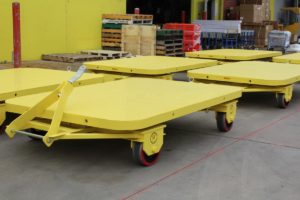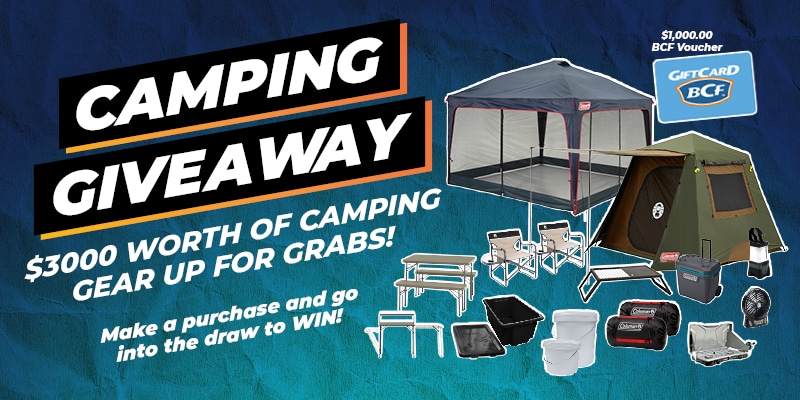How To Choose The Best Castors In 9 Easy Steps
- Calculate the load rating
- Which wheel diameter do I need?
- What types of castor wheels are available?
- How does each type of castor wheel perform on various surfaces?
- Do I choose swivel or rigid castors?
- Do I need brakes?
- Which fixing type do I need?
- Which type of bearing is best?
- Will you be using castors in a place where hygiene and health are important?
Before we start, a quick note for those who might be a bit confused on what the difference is between a wheel and a castor.
A wheel is simply that, a wheel and nothing else.
A castor consists of two major components – a wheel, and that is installed in a frame, which holds the wheel in place. The frame is often called a castor bracket, rig or fork. The frame is at the top of the castor, and is attached to your piece of equipment or other item.
You can buy spare or replacement wheels for castors, as the wheel itself can wear out over time (depending on type of wheel), but the castor bracket can last much longer – if it is of high quality.
Or you can just buy spare or replacement castors (the wheel AND the frame it is attached to).
AdMerch have a comprehensive range of standard and heavy duty wheels and castors from Australia’s leading Castor Company.
Choosing a castor is a decision that should not be taken lightly. The wrong castor can do more than just break (potentially causing costly damage). The wrong type of castor can also cause significant damage to multiple floor surfaces, and provide inadequate control – causing damage to walls and other objects as a result of collisions.
But these costly mistakes can be easily avoided, thanks to these 9 critical things to consider before choosing a castor.
-
Calculate the load rating
{back to top}
The most important thing to consider – here’s the best and easiest way to do it.
- Calculate the maximum expected load you will be putting onto castors.
- Remember to include the load of the item itself (such as a trolley, cabinet, or machinery), as well as the maximum load your item is expected to carry.
- Add 20-30% of the load total, this is your safety margin. (load of 200kg now equals 240-260kg)
- Divide the total weight by the number of castors you will be using
- 260kg / 4 castors = 65kg per castor
- Finished!
-
Which wheel diameter do I need?
{back to top}
Ensure that the wheel is large enough to pass over cracks and obstructions.
As a rule of thumb, the larger the wheel, the easier it is to push and to pass over bumps and minimize vibration.
Even if the load capacity is the same on a smaller diameter castor wheel – ALWAYS choose the bigger diameter. Unless you are going to be using the castors with very light loads (under 100kg), then smaller castor wheels can be sufficient.
It won’t cost you much more to choose larger wheel diameters, and it guarantees safety and performance.
When it comes to castor wheels – size DOES matter.
-
What types of castor wheels are available?
{back to top}
Castor wheels come in a large variety of different materials, often a combination of multiple materials. This is to suit the wide variety of industry applications, surfaces, load capacities, and functions that are required.
Castor wheels made from different materials can have wide ranging load capacities. However it is more common to associate the castor wheel material with its suitability for different floor surfaces and applications.
AdMerch have their Castor Wheels categorised in a way that lets you target your required load capacity first, then you can choose the most suitable material construction.
Below are the most common types of castor wheels. If you do not see what you are looking for, just contact one of our knowledgeable staff for further information.
Most castors sold at AdMerch have a zinc plated finish on both styles of fixing, which provides a corrosion resistant finish. Look out for the ‘zinc plated’ in the product description.
Rubber Wheels
There are a few variations of rubber castor wheels, but they all have some common features:
- Non-marking (doesn’t leave marks on your floor)
- Shock absorbing
- Quiet
- Ideal for timber, vinyl, tiled, and concrete flooring
Rebound Rubber wheels are very quiet in operation, with a low rolling resistance. They are ideal for moving lightly loaded equipment over uneven ground. Rebound rubber rolls over small obstructions easily. Some application examples include waste bins, laundry trolleys, electrical equipment, and other “handle with care” goods.
Institutional Rubber wheels are grey rubber wheels. Features include sealed bearings and matching grey nylon thread guards for added protection. Sealed bearings eliminate any need for maintenance. Often used in hospitals, schools, home use, and light industrial environments.
AdMerch have a specific range of Medical Castors that have the comfort and safety of patients at the forefront of their design, and the safe and easy movement of equipment between rooms.
Anti-static (conductive) rubber wheels provide a surface resistivity of less than 10,000 Ω (OHMs) – conforming to Australian Standards (AS 2050 1978). Anti-static (conductive) caster wheels allow electricity to flow through the unit, eliminating static charges. This function is often required for use within industries such as computer or electronics manufacturing or general service.
Note: Anti-static (conductive) is superior to castor wheels that are just anti-static. Anti-static will help negate static electricity and prevent its build up, but conductive anti-static will eliminate it altogether.
Polyurethane Wheels
- Hard wearing
- Most well-rounded performer across all floor surfaces
- Longer tread life than rubber
- Quiet operation
- Low rolling resistance
- Non-marking
- Offers excellent floor protection on linoleum, tile, and carpet
Polyurethane castor wheels come in many colours and consist of either entirely polyurethane or a combination of a polyurethane outer with a centre of nylon, or metal such as aluminium or iron.
When the polyurethane castor wheel has a metal centre, it has anti-static (conductive) properties, eliminating static charges. This function is often required for use within industries such as computer or electronics manufacturing or general service.
Castor wheels made entirely of polyurethane can withstand water, oil, grease, chemicals, and most solvents. They are suitable for medical or food applications. They are also used on the outside layer of the toughest castor wheels with load capacities in excess of 10 tonnes!
Rebound Polyurethane castor wheels are a softer than normal tyre, which provides a smoother, quieter ride than most polyurethane or nylon wheels. They will remain cleaner than other wheels, and combined with stainless steel bearings, these wheels are suitable for clean or wash down rooms and other applications where aesthetics and performance are crucial.
Nylon Wheels
Nylon castor wheel varieties share some common traits:
- Low rolling resistance
- Durable
- Non-marking
- Ideal for hard, smooth surfaces and outside/wet environments
- Also ideal for carpeted surfaces
- Often used in refrigerated areas
Glass Filled Nylon – Extreme Temperature Resistance
These wheels are made from a blend of nylon and glass fibres and are specifically designed to withstand high and low temperatures.
At AdMerch, our glass filled nylon wheels can comfortably endure temperatures between -30ᵒC and 240ᵒC. Cast iron and aluminium wheels offer higher temperature resistance, explained further below.
Glass filled nylon is resilient, gentle and quiet on most floor surfaces, resists hard impacts, and very durable and resistant to oils, greases and cleaning agents.
The addition of glass fibres to nylon also increases overall strength when compared to regular nylon.
Note: Glass filled nylon may cause some small marks and scratches on both softer and hard surfaces. Not recommended for surfaces intended to be on display to customers.
Cast iron – Extreme Temperature Resistance
- Abrasion resistant – wheels are exceptionally long wearing
- Low rolling resistance
- Extreme heat resistance
- High load capacity
- Will damage or mark floors
Cast iron and spheroidal graphite iron castor wheels provide high load capacities and are easy to initiate movement.
Extreme temperature resistance between -30ᵒC and 300ᵒC – suitable for use in bakery ovens, smoke houses, chillers, and other applications where there is temperature fluctuation.
These castors are quite heavy and noisy, usually only found in heavy duty industrial environments.
Aluminium – Extreme Temperature Resistance
- The highest temperature resistance (on some models)
- Slightly lower weight capacity compared to cast iron
- Noiseless options
- Suitable for use in bakery ovens, smoke houses, chillers, and other applications where there is temperature fluctuation.
Aluminium castor wheels sold at AdMerch have the highest temperature resistance – a massive 400ᵒC! (Refer to each individual wheel for maximum temperate as temperature range varies between 280ᵒC and 400ᵒC).
The minimum temperature resistance is -30ᵒC. Aluminium castor wheels are usually specifically used when dealing with extreme temperatures.
Pneumatic Wheels
Pneumatic castor wheels are ideal for use on agricultural equipment, and for making sports equipment such as batting cages, nets and equipment trolleys more mobile on soft ground.
Pneumatic castor wheels sold at AdMerch have sealed bearings for increased water resistance and decreased rolling resistance. AdMerch also have puncture proof options.
-
How does each type of castor wheel perform on various surfaces?
{back to top}
I have created a handy table that can allow you to quickly get an idea of the types of castor wheels you should be looking for.
This table is an approximate guide only, always refer to individual product information before making a purchase.
| Castor Wheel | Floor Surface | |||||
| Carpet | Vinyl | Tiled | Concrete | Asphalt | Gravel/Dirt | |
| Rebound Rubber | Fair | Good | Fair | Good | Good | Good |
| Institutional Rubber | Fair | Good | Good | Fair | Fair | Poor |
| Glass Filled Nylon** | Poor | Poor | Poor | Good | Poor | Poor |
| Nylon | Good | Fair | Poor | Good | Poor | Poor |
| Cast Iron | Poor | Poor | Poor | Fair | Fair | Good |
| Polyurethane | Good | Good | Fair | Good | Good | Fair |
**Refer to above notes (3. What types of castor wheels are available?) for further information.
Other important factors to consider when thinking floor surfaces:
- Harder wheels require less effort to start turning on smooth surfaces – think polyurethane and nylon
- For lower push effort over rough ground (asphalt, dirt), choose high resilience castor wheels such as rebound rubber or pneumatics
- Nylon or polyurethane castor wheels are more suitable for dirty floors as they resist dirt particles
- Domed-tyred wheels require less force to roll on carpeting, but will leave indentations if they are left stationary on carpets and softer surfaces
- Flat profiled castor wheels will spread the load and prevent damage to floors, even when moving heavier loads
- Rebound and institutional rubber is not recommended in corrosive environment. Polyurethane is very resistant and almost impervious to most solvents and chemicals.
-
Do I choose swivel or rigid castors?
{back to top}
Or perhaps more importantly, what is the difference between swivel and rigid castors?
It’s really simple.
A rigid caster, also known as a fixed caster, is a wheel mounted in a set of forks, that doesn’t turn. This means rigid casters can move forward and backward in a straight line, but they can’t be steered.
This does however make rigid castors easier to set in motion when attempting to move heavy loads.
Swivel castors rotate 360° and can respond immediately to changes in direction. These castors swivel on ball bearings to keep the wheel turning – even under heavy loads.
Loads on swivel casters can take more effort to set in motion than rigid casters, because it takes a push to get all the wheels pointed in the same direction before the cart or truck will roll.
Also, it can be very challenging for a cart or truck with only swivel casters to roll in a straight line, so an object with only swivel castors should only be safely used to travel short distances.
But there is obviously a way to get the best of both worlds – combining both rigid and swivel castors.
AdMerch have a fantastic guide complete with easy to understand diagrams, detailing different combinations of swivel and rigid castors, and how they are best combined to suit your needs.
-
Do I need brakes?
{back to top}
If you are planning on using castors on sloped or uneven surfaces, it may be a good idea to choose an option with a brake.
Swivel castors also have the option of a directional lock, to stop the castor from swivelling so that it can move in a straight line, or other required angle of direction.
-
Which fixing type do I need?
{back to top}
There are two main types of castor fixings.
Plate Type – the best supported fitting, as the plate can either be bolted or welded onto the product. Ideally suited to products with a flat, solid base – and heavier loads.
Bolt Type – Usually involves some kind of stem, ideal for fixing into tube, such as trolleys and display equipment. The stems come in a number of different optional varieties:
- Expanding pintles that expand to fit inside the required tube (AdMerch have options between 19mm and 28.5mm diameters
- Standard pintle bolt that will screw directly into a threaded hole – often available in different sizes (10mm, 18mm, 25mm etc.)
- Threaded tube end inserts are available in various sizes to fit most tubes, enabling easy installation of standard pintle bolts
- Grip necks and friction stems are used for very narrow tubes
-
Which type of bearing is best?
{back to top}
The most common bearing you will come across is the ball bearing. But there are other bearings which are ideal for specific applications, so they might more accurately meet your requirements.
Ball bearings are used in applications where heat can build up due to friction, because they have the lowest friction. This also means they are the easiest to get moving.
At AdMerch, precision deep groove ball bearings are fitted to most of our heavy duty wheels. Such wheels have very low rolling resistance and are normally provided with double seal bearings that in most cases will never need maintenance. If the application required regular greasing, grease nipples can be fitted.
Roller bearings are used in high-impact applications (including frequent shock and vibration). Roller bearings are not suitable for high speeds (more than 6 kph), and if kept well-greased they can cope with some dirt or water. They can handle high load capacities and are suitable for heavy duty applications.
Taper roller bearings are the best choice for power towing applications, and have the highest carrying capacity – they are used on super heavy duty castors. All good castor wheels with taper roller bearings are fitted with oil seal sleeves. Unless you are in big industry, you are unlikely to need these bearings.
Plain bearings are suitable for lighter loads where rolling resistance is not as important. They are highly resistant to chemicals and high heat conditions. Always the best choice in corrosive, high heat or very wet conditions where better bearings would not survive.
Bronze bearings are a type of plain bearing (also suited to extreme temperature conditions, and corrosion resistant). They are highly recommended for high heat or wet applications, and are self-lubricating – no maintenance required.
-
Will you be using castors in a place where hygiene and health are important?
{back to top}
If your answer is yes, there’s a simple course of action to take – choose stainless steel.
A stainless steel frame combined with full stainless components make stainless steel castors the ideal choice for use in wet areas, frequent wash down applications and food, medical and health industries. Thinkrestaurant, food processing factory, laboratory, hospital, nursing home, commercial laundry – the list goes on.
AdMerch have a large range of stainless steel castors. This includes our Elite Bolt and Elite Plate castors which never need maintenance! They can be fitted to food carts and other items which will move through cool rooms, hot kitchens, and even have the ability to be hosed down without affecting performance.
Most castors sold at AdMerch also have a zinc plated finish on both styles of fixing, which provides a corrosion resistant finish. Look out for the ‘zinc plated’ in the product description.
***
So there you have it – the 9 most important things to consider when choosing castors.
We hope that your next castor choice will be the right one, and that our 9 easy steps can help you find a long-lasting, high performance solution that will keep you satisfied for many years to come.
AdMerch also have customised solutions if you are looking for castors for a scaffolding system, waste bin, or residential or commercial gate.
If you still need some help, just contact one of our knowledgeable staff for further information. As a starting point, we suggest you check out our range of wheels and castors today!











